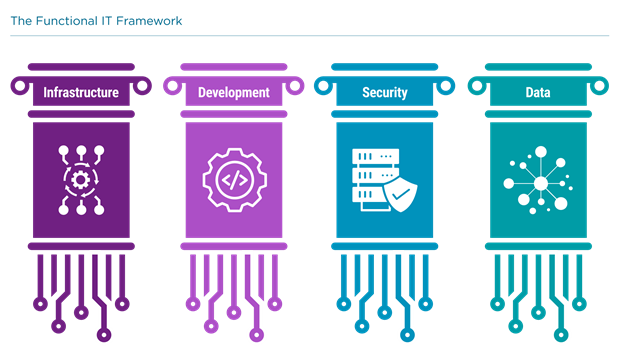 There’s not much doubt around which technology field is dominating the digital landscape. The field of software is the dominant focus area for most businesses, and this is reflected in the occupation data. CompTIA’s State of the Tech Workforce report shows that there were over 1.9 million workers in software roles in 2021. The next largest category, IT Support Specialists, clocks in at just over 750,000 workers. In spite of the size, the category of software is still expected to grow fastest in 2022, leading the pack with a 3.4% growth rate.
There’s not much doubt around which technology field is dominating the digital landscape. The field of software is the dominant focus area for most businesses, and this is reflected in the occupation data. CompTIA’s State of the Tech Workforce report shows that there were over 1.9 million workers in software roles in 2021. The next largest category, IT Support Specialists, clocks in at just over 750,000 workers. In spite of the size, the category of software is still expected to grow fastest in 2022, leading the pack with a 3.4% growth rate.
It's not exactly that software is more important than any other area of IT. After all, you can’t run applications without something to run them on. But software is where organizations are expecting to build differentiation.
It’s difficult to build an advantage in infrastructure, especially when most places can already access more computing power than they can immediately apply. Cybersecurity is a very hot topic, but it’s mostly about protecting assets and operations, not creating competitive advantage. Data management and analysis has potential for jump-starting growth, but many organizations are in the very early stages of building capabilities. Software is more established, especially as companies have been shifting away from pure packaged software into more tailored initiatives.

With that said, becoming a full-time programmer is still not for everyone. Managing infrastructure, building cybersecurity schemes, or analyzing data may be a better fit for your personal skills and preferences. So if software has become the center of the universe, how do you extend your skills into this area while still leveraging your core expertise? There are three big opportunities to explore.
Scripting – Using Code to Level Up
Even if you don’t want to write code all day every day, the most direct way to play in the software sandbox is to add scripting skills within your field. Some common examples are shell scripting in a Linux environment, writing Python scripts for cybersecurity tasks, or using the R language for data manipulation.
Scripting can serve multiple purposes. Scripts add consistency to processes, which can be especially helpful as processes get handled by different team members. Scripts also boost productivity by combining steps in complex tasks. More than anything, though, scripts are used for automating routine tasks, allowing an IT pro to work on more innovative ideas.
Automation – Leveraging Software Across the Business
The concept of automation doesn’t stop with scripting, though. Many organizations are aiming to automate processes in business units such as HR, finance and even the help desk. For some firms, this is part of a broader digital transformation effort, where paper-based or manual processes are getting digitized for the first time.
Further down the adoption path, organizations are turning to robotic process automation. This often involves low-code or no-code tools like Zapier or Metabase, which give business professionals the ability to directly automate the processes that they use on a day-to-day basis. While the goal is to hand some control over to business units, IT pros still have a critical role to play in implementing systems and providing user support.
DevOps – Improving the Entire Software Process
DevOps provides another opportunity for IT pros who are not strictly developing software. DevOps largely refers to the overlap of infrastructure and software, creating development environments and process flow that accelerates software turnaround times. The success of DevOps has filtered into other areas of IT, and it’s getting common to hear discussions around DevSecOps or DataOps, though these disciplines haven’t quite built the same momentum yet.
Even without specific labels, the idea of overlap applies to every part of IT. The ultimate goal is to align infrastructure management with software needs, ensure the entire operation takes place securely, and perform data analysis to refine the process. Applying different expertise to the DevOps process starts with an understanding of DevOps principles and the strategic objectives behind a DevOps practice.
Even as software has become the biggest part of the IT ecosystem, it has also driven a higher degree of complexity. There are many different levers to pull for an organization to gain an advantage, and the lines between disciplines are usually blurry. The skills that come from CompTIA’s current offerings can be extended into software initiatives, and we will be exploring new ways to help build software expertise.
Ready to upgrade your IT skills? We've got great news! You can save big on CompTIA certifications and training right now.




0